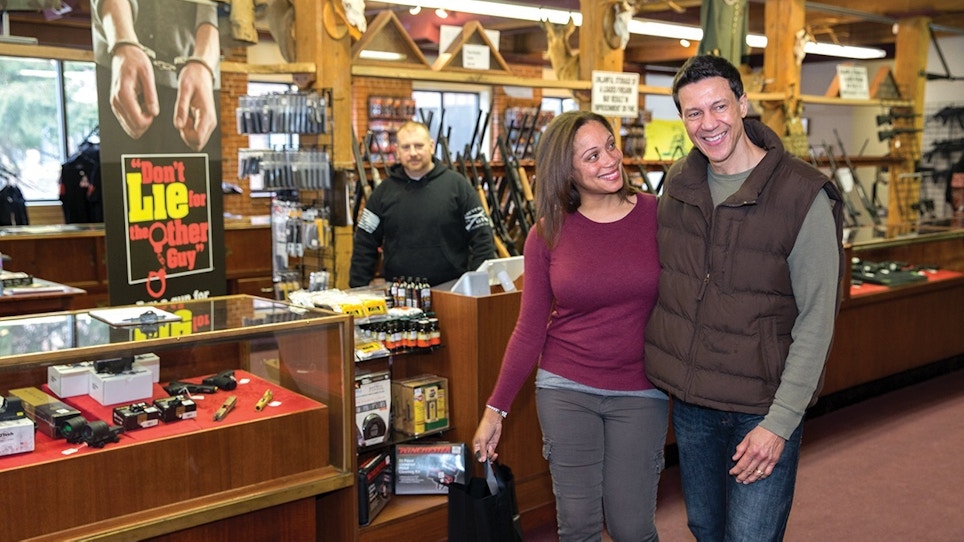A very long time ago I was hired as a consultant by W.L. Gore and Associates, makers of Gore-Tex, among other products, to help both their manufacturing and retail partners design and sell what was then cutting-edge outdoor clothing in the hunting market. Part of that gig was traveling to retailers, large and small, around the country, teaching sales associates how Gore-Tex and Windstopper actually work and how to sell this new, expensive technology. Along the way I met some really talented sales people and managers. Here are some of the key things they taught me about helping new employees succeed in today’s environment.
1) Teaching fundamental retail sales skills, not subjective concepts, is key.
Rather than spit worn-out clichés like “The customer is always right,” provide training that gives employees confidence and knowledge. This will translate into confident staff members who feel secure as they interact with customers. Three basic training goals are: a) getting staff knowledgeable enough about the product(s) to comfortably talk about them; b) getting staff comfortable when speaking with strangers; c) understanding the importance of body language.
2) Foundational product knowledge is crucial.
Nothing will kill an immediate sale and the customer’s opinion of your business faster than sales staff that know little about what you’re selling. When that happens, most customers won’t tell management about it — they will simply leave and never return, and then tell their friends. They might even head to the parking lot and immediately start shopping your competitors on their phones. With Gore-Tex, for example, we taught staff the features and benefits of these high-tech products and why paying more for them was a bargain in the long run. We knew that the customer came to the store for this knowledge and for gold-plated customer service. A knowledgeable staff builds rapport with the customer; this rapport helps make the sale, and, hopefully, a repeat customer.
3) Teach communication skills.
It doesn’t matter if the sales person invented the product — if they cannot communicate its features and benefits in a practical manner, they’ll never sell it. Millennials, don’t take this personally, but in the old days, in school we learned skills like how to speak clearly and concisely without using slang, how to use the proper tone of voice, how to keep eye contact without appearing intimidating, and how to speak without interrupting. Many younger entry-level sales people don’t have these skills, and it is up to management to teach them and reinforce their importance. Teaching the importance of listening is also critical. Only by closely listening to what the customer is saying will you know exactly what they’re looking for and how to meet those needs — and possibly upselling.
4) Recognize the importance of non-verbal communication.
Remember, first impressions matter. Often, it’s not what the sales staff says that matters most, rather, what they don’t say and how they act makes all the difference. A part of the training process must address such basic issues as clothing and how to dress professionally, as well as personal appearance expectations. Even if you have uniform shirts, for example, employees need to know the shirt must be clean and pressed, not wrinkly and dirty. Seems basic, doesn’t it? By spelling out what clothing is appropriate, potential conflicts are nipped in the bud. Be clear about your store policy on visible tattoos and body piercings. Also, body posture is important. What makes a better first impression: an employee with a smile who greets a customer as they enter the store, or an employee with a scowl who doesn’t make eye contact and is busy playing on their phone? Be sure to set policy from the get-go and be prepared to explain why.
5) At work, be professional.
As a culture, our interactions with others have become increasingly casual. From how we dress to how we talk to one another, as a society we just don’t act as formally as we used to. In sales, it pays to be professional. That means leaving the casual style of dress and speech for after work when you’re hanging with your buds, not when you’re trying to seal the deal. This is especially important when younger sales staff are interacting with Baby Boomers, to whom respectful interaction is very important. Professional also means being on time. Just last year I went to a big-box hunting retailer whose website said they opened at 9 a.m. There were 10 vehicles in the parking lot waiting for the doors to open, and when they hadn’t by 9:15, every one of those customers drove away. I now only shop there when I absolutely have to.
The bottom line?
It is a mistake to assume that new hires, most eager to succeed, already know how to dress, act, and sell your product line. It’s up to you to teach them. In today’s ultra-competitive marketplace, it is the professional sales staff that will keep customers coming through your doors.
How do you train your sales staff? Do you find it difficult to find new hires willing to adapt to your culture? Please drop me a line at editor@grandviewoutdoors.com. I’d love to share your thoughts with others just like you.






